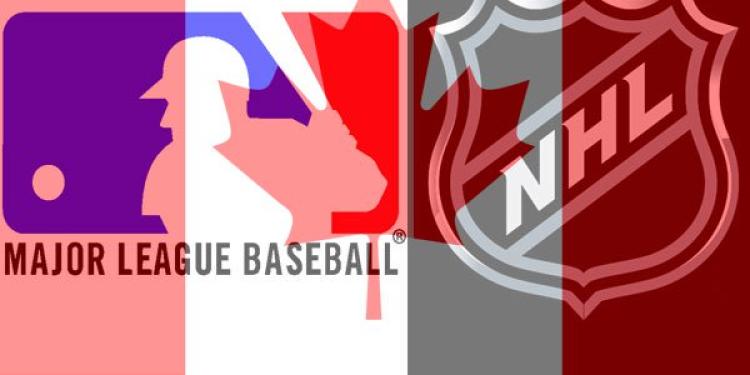Canadian Sportsbetting Industry Stuck in Neutral
Posted: January 28, 2014
Updated: October 4, 2017

Stalled bill would allow provinces to partially deregulate sportsbetting, allow single-event bets.
In 2012 Canada’s casino and sportsbetting industry successfully lobbied the legislature to introduce a bill that would have slightly loosened betting regulations. Rather than require bettors to parlay-which means to place bets on multiple events simultaneously-the new bill would have allowed them to bet on single events. But rather than change federal gambling rules, it would simply allow provinces to make their own laws with regards to the activity.
Bill C-290, as it is called, has languished in the Senate for almost two years, even after it received almost unanimous support in the house. Bill Rutsey, CEO of the Canadian Gaming Association had this to say:
“Continued shameful inaction and procedural delaying tactics by the Senators only serves to fuel organized crime and illegal offshore bookmakers, because they are the ones who profit from illegal single-event wagering…What we are witnessing, unfortunately, is an unaccountable Senate that prefers to debate the morality of gaming and not the dangerous status quo that they are in no hurry to fix.”
To bet on sports is extremely popular in Canada as it is in most of the world. Many bettors prefer the convenience of making single event bets, and thus use foreign bookmakers which do not operate within the system of regulation. Proponents of the bill argue that it will help keep bets, and thus revenue, in the country.
Potential positive effects of passage
The passing of C-290 would likely have many positive effects on the gaming industry and on the country in general. The gaming and tax revenue lost by bettors taking their wagers overseas will return, at least in part. In addition, offering single-event betting is likely to coax American bettors into Canadian casinos.
The bill is especially popular in and around city of Windsor, which lies just minutes away from Detroit. Business interests believe that many Americans would make the trip there if given the opportunity to make single-event bets. David D. Schwartz, head of the Gaming Research Center at the University of Nevada-Las Vegas weighed in: “It would definitely be a draw. It would give people a reason to cross the border. It’s something you can do that you can’t do in Detroit.”
Risely Gaming CEO Jim Warren echoed this idea, pointing out to certain events like the basketball Final Four and the baseball World Series as major events that would bring a lot of Americans to Canada to make single-event bets. Especially considering that both land-based and internet betting in America are heavily regulated, deregulation in Canada would provide a big opportunity for American bettors.
In addition to bringing American dollars into the country, C-290 would make it less likely for Canadians to place bets elsewhere. Liberal Senator Terry Mercer is a fierce advocate: “The type of betting this bill will allow is already happening, but it is happening underground… Billions of dollars are being lost to this illegal betting industry.”
The roots of opposition
Opposition to the bill comes from a diverse range of sources. Both the National Hockey League (NHL) and Major League Baseball (MLB) have officially lobbied against its passing. Representatives from both leagues have expressed concerns about the effect that single-event betting could have on the integrity of their sports.
– Single-event betting is illegal in Canada; bettors must parlay (bet on three events at once)
– The Wall Street Journal reported that during the first 469 days C-290 languished in the Senate, Canadian bettors placed $18 million in illegal wagers
– A survey said 64 percent of Canadians support legalizing single-event betting
NHL Deputy Commissioner Bill Daly was recently quoted saying “it is far easier to engage in ‘match fixing’ in order to win single-game bets than it is in cases of parlay betting.” Senator Lindsey Frum described her opposition to the bill on grounds that it was harmful to the interests of the major sports leagues. While such concerns must be heard, it is unlikely that legalization of single-event betting would suddenly cause a storm of match fixing.
In addition, many social conservatives are concerned about the alleged negative social effects of land-based and online sportsbooks in Canada. While C-290 will only make a small change to the industry, many see any further legalization as immoral and undesirable. However, most politicians who oppose passage justify it on grounds of protecting the integrity of major sports leagues, and not as an issue of personal morality.
In September of last year Canada’s Conservative Prime Minister Stephen Harper chose to prorogue parliament, which means that the current session was discontinued but not resolved. This further delayed the passage of the bill.
Bodog case highlights cross-border betting
American bettors have long attempted to escape heavily regulation at home by looking to the North. In 2012 the Canadian online betting site Bodog had its domain name seized by the US federal government for allegedly illegally taking bets from US gamblers. Officials accused Bodog executives of using foreign bank accounts and fake American addresses to pay winnings to American bettors.
Bodog owner Calvin Ayre sold the company’s US-servicing arm to the Quebec-based Morris Mohawk Gaming Group, which operates under the domain name bovada.lv. The site accepts bets from all US states except Maryland, New York and Washington. Aside from internet betting, the site also allows user to play online poker in America.
The case shows how tightly connected the gambling markets in the two countries are. The American market is heavily regulated despite the massive popularity that gambling enjoys there. American bettors have and will use casinos and online sportsbooks in Canada. If C-290 is passed, there is little doubt that more money will flow Northward into Canadian pockets.
Any chance the bill will make it?
C-290 has languished in parliament for over two years amidst staunch opposition from the NHL and MLB, among other major sports leagues. While many in Canada support legalizing single-event betting-especially in Ontario, which would likely receive an influx of American bettors-it looks like the resistance is too stubborn to compromise. It is unlikely that the bill will be passed by the Senate, and bettors will have to settle for parlay bets.











